Journal Boards
Editor-in-Chief

Asst.Prof.Dr., Fırat Altun, was born in Diyarbakır, Turkiye, and began his formal musical education at the Diyarbakır Anatolian Fine Arts High School, where he cultivated his foundational skills in music. His academic journey continued with a Bachelor’s degree in Music Education, during which he engaged deeply with the polyphonic traditions of Turkish music, advanced his technical and performance skills on the cello, and developed a rigorous understanding of choral conducting and aural skills. After completing his undergraduate studies, Fırat Altun furthered his academic pursuits with a Master’s degree in Music Education. His scholarly path then led him to the University of York at the United Kingdom, where he was awarded a competitive scholarship to undertake doctoral research at a leading institution in Music. His doctoral studies encompassed interdisciplinary research in music cognition and affective response, advanced compositional techniques, and ear training. In addition to his academic endeavors, he actively contributed as a cellist to various performances with symphony and chamber orchestras. Fırat Altun’s research interests lie at the intersection of music perception and cognition, composition, and performance, with a particular focus on the cognitive and cultural dynamics of musical structure. His work contributes to a deeper understanding of how music is perceived, composed, and performed across different cultural contexts.
Affiliation: Harran University, Education Faculty, Fine Art Department, Şanlıurfa, Turkiye. Email: firataltun@harran.edu.tr ORCID: 0000-0002-2435-4909
ResearchGate: https://www.researchgate.net/profile/Firat-Altun
Academiaedu: https://york.academia.edu/FıratALTUN
GoogleScholar: https://scholar.google.com/citations?user=eAhY16YAAAAJ&hl=tr
Advisory Board
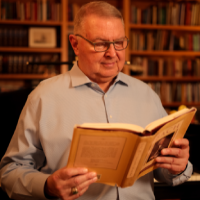
Editors/Field Editors



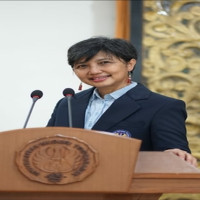
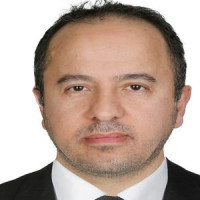

International Editorial Board Member

Vesna Svalina, Ph.D. (1968) is an associate professor in the field of music education and president of the Music Subdepartment at the Faculty of Education, Josip Juraj Strossmayer University of Osijek. Since 2020, she has also been working at the University of Slavonski Brod at the Department of Social Sciences and Humanities, and during the summer semester of the 2023/24 academic year, she taught courses at the University of Zagreb (Faculty of Teacher Education) titled Methodology of Music Education I and Methodology of Music Education III. She graduated from the study program of music pedagogy of the University of Osijek (Faculty of Education) in 1991. She holds a Master of Music Education degree from the University of Zagreb (Music Academy, 2009) and a doctoral degree in early education and compulsory education from the Faculty of Teacher Education of the University of Zagreb (2013). Dr. Svalina has published her scientific work in journals and conference proceedings, both nationally and internationally. She is the author of two books in the field of music pedagogy, has published over forty scientific papers, and has participated in numerous national and international scientific conferences (Cambridge – UK; Paris – France; Copenhagen - Denmark; Rostock – Germany; Cetinje – Montenegro; Ljubljana, Ruše – Slovenia; Beograd, Kragujevac – Serbia; Dubrovnik, Osijek, Pula, Split, Zadar, Zagreb – Croatia). Her scientific interest is focused on the music education in primary and secondary schools, musical giftedness, creativity in music education, music therapy and inclusive education, application of technology in music education, development of personal and social skills through music, listening to music as a teaching area. She participated in numerous international scientific conferences at home and abroad. From 2015 to 2016 she was head of the scientific research project Listening to music as an important subject area in the primary music curriculum. From 2009 to 2013 she was involved in the project Development of Creativity in Lifelong Teacher Education, and from 2018 to 2021 in the project Giftedness in the Artistic Field - Analysis of the Situation Among Primary School Pupils in Terms of Artistic and Musical Giftedness. From 2015 to 2018 she was managing editor of the journal Life and School. Today, she is a member of the editorial boards of two journals: SN Social Sciences, and Journal for the Interdisciplinary Art and Education. She has also given numerous concerts with the choirs, both in Croatia and abroad (Italy, Germany, Austria, Slovenia, Switzerland). She won numerous first prizes, both nationally and internationally, at different choir competitions (11 first prizes at national and 7 at international competitions). She also won three special prizes: for the best performance of the compulsory song, for the best interpretation of the song composed by a Croatian composer, and for the artistically most convincing conductor.

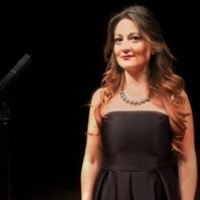
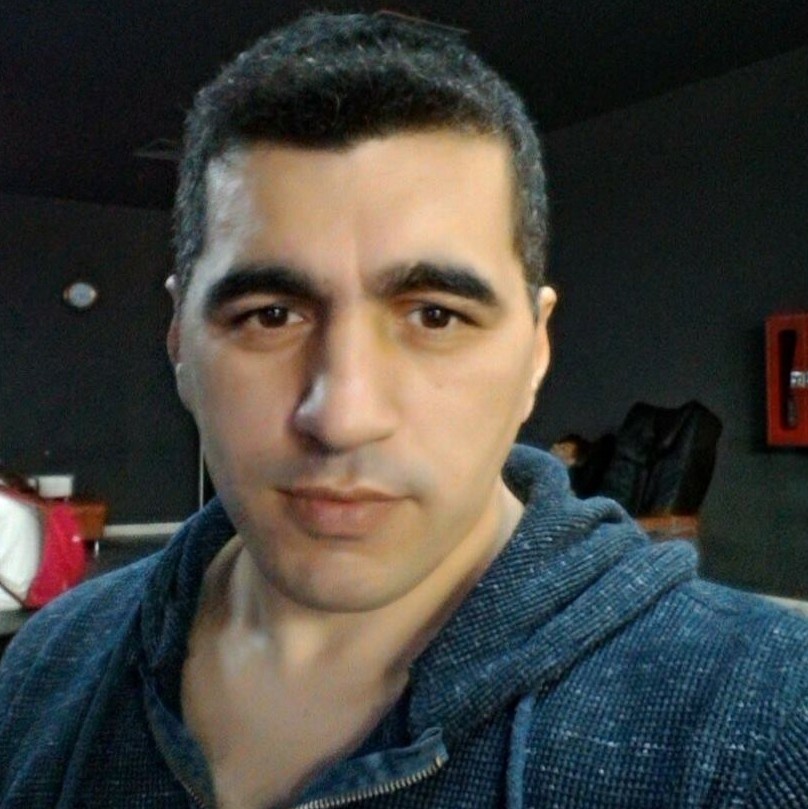

 Web
Web

Vildan IŞIK is an artist and scholar whose work explores the dynamic intersections of painting, holography, visual culture, and emerging technologies. Born in Osmaniye in 1973, she graduated from Dokuz Eylül University’s Faculty of Fine Arts, Department of Painting in 2000 with a thesis titled “The Problematic of Chance and Coincidence in the 20th Century.” She later obtained her master’s degree in 2006 from the Institute of Social Sciences at Cumhuriyet University, where her thesis—“Art Debates in Turkish Painting between 1930–1970 and the Artist at the Centre of the Debates: Bedri Rahmi Eyüboğlu”—focused on the role of Eyüboğlu in shaping critical discourse within modern Turkish art.
Her academic and artistic journey has consistently bridged theory and practice. In 2012, she conducted research on holography in Seoul, South Korea, which laid the groundwork for her subsequent doctoral thesis entitled “Holography as a Medium of Artistic Expression”, completed at Gazi University’s Institute of Fine Arts in 2013. This study culminated in a curated exhibition that explored the relationship between holography, painting, and photography. She earned her proficiency in art (the equivalent of a doctoral degree) and was awarded the title of Associate Professor in 2016.
Since then, she has been serving as a faculty member at Düzce University’s Faculty of Art, Design, and Architecture, the Department of Basic Art Sciences. Prior to her current appointment, she held various academic and institutional positions between 1999 and 2014.
Dr. Işık’s research and artistic practice center on the evolving relationship between art and digital media, with particular emphasis on artificial intelligence, iconography, and interdisciplinary aesthetics. She has published extensively in peer-reviewed journals and presented her work at numerous international conferences on art and design.
Her recent solo exhibitions, Urban Mutation (2024) and Holographic AI Glitch (2025), engage with themes such as algorithmic error, glitch aesthetics, and urban transformation. Through a practice that integrates critical theory, technological experimentation, and visual inquiry, Vildan IŞIK continues to make a multifaceted contribution to contemporary visual culture as both a researcher and an artist.

Dr. Rita L. Irwin is an artist, researcher, and teacher deeply committed to the arts and education. She is a Distinguished University Scholar and Professor of Art Education in the Department of Curriculum and Pedagogy at the University of British Columbia in Vancouver, British Columbia, Canada. Rita served as Associate Dean of Teacher Education at UBC from 2005-2015 and Head of the Department of Curriculum Studies from 1999-2005. Rita has been an educational leader for a number of provincial, national and international organizations including being President of the Canadian Society for the Study of Education, Canadian Association of Curriculum Studies, Canadian Society for Education through Art, and the International Society for Education through Art.
Research Interest
Irwin's research interests have spanned in-service art education, teacher education, socio-cultural issues, curriculum practices across K-12 and informal learning settings, and a/r/tography. Well known co-edited books include Revisions: Readings in Canadian Art Teacher Education (with K. Grauer & M. Emme). Storying the World: The Contributions of Carl Leggo (with E. Hasebe-Ludt & A. Sinner), Provoking the Field: International Perspectives on Visual Arts PhDs in Education (with A. Sinner & J. Adams), Visually Provoking: Dissertations in Art Education (with A. Sinner & T. Jokela) and The Flaneur and Education Research: A Metaphor for Knowing, Being Ethical and New Data Production (with A. Lasczik).
AwardsIn recognition of her many accomplishments and commitments, she has received a number of awards for her scholarship, service and teaching including the distinction of Distinguished Fellow of the National Art Education Association in the USA, the Ted T. Aoki Award for Distinguished Service in Canadian Curriculum Studies (CACS), the Canadian Art Teacher of the Year Award (CSEA), the Elliot Eisner Lifetime Achievement Award (NAEA) and the Killam Award for Excellence in Mentoring (UBC).
Website: https://www.ritairwin.ca/

Received her Ph.D. degree from The Department of Architecture at Karadeniz Technical University in 2009. She has continued her work as a professor at the same institution. She has published articles in English and Turkish in various academic journals on topics such as architectural design, transparency in architecture, perception and meaning in architecture, and cultural heritage, which are her main research interests, and teaches various courses at the undergraduate and graduate levels in these fields.
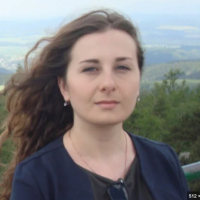
Asmati Chibalashvili is an Associate Professor at Kyiv National P. I. Tchaikovsky Music Academy; Deputy Director for Research, Modern Art Research Institute of the National Academy of Arts of Ukraine; Member of the Ukrainian Composers’ Union. She graduated from the Odesa State Music Academy named after A. V. Nezhdanova (class of Prof. Karmella Tsepkolenko, 2006). Completed postgraduate studies at the Kyiv National P. I. Tchaikovsky Music Academy under Prof. Yevhen Stankovych (2010). Awarded a diploma by the Ambassador of Georgia to Ukraine for promoting Georgian art and developing Ukrainian–Georgian cultural relations (Kyiv, 2002). Winner of the 1st Prize at the International Competition of Young Composers Gradus ad Parnassum (Kyiv, 2016). Recipient of the Silver Medal of the National Academy of Arts of Ukraine (2021). VUIAS Fellow in the Open Society University Network/CEU Institute for Advanced Study (Budapest, 2023–2024). Nonresidential Visiting Scholar at Indiana University (2024–2025). Her creative work combines compositional practice with academic research, focusing on posthumanism, contemporary Ukrainian music, and the artistic documentation of social crises. Her recent projects experiment with multimedia and visual or performative elements to reflect on themes of resilience, transformation, and collective experience. Her music has been performed at numerous international festivals, including Two Days and Two Nights of New Music (Odesa, 2006–2024), Music Marine Fest (Odesa, 2006), Season Premiere (Kyiv, 2007), International Youth Music Forum (Kyiv, 2007, 2009, 2011), Music Tribune of Kyiv’s Youth (Kyiv, 2008), Young Composers of Ukraine (Lviv, 2009), GOGOLFEST (Kyiv, 2012, 2014), Days of New Music (Kharkiv, 2012), Contrasts (Lviv, 2013, 2022, 2024), Nordic Saxophone Festival (Aarhus, Denmark, 2016), World New Music Days ISCM (Vancouver, Canada, 2017), Kyiv Music Fest (2022), and Bouquet Kyiv Stage (2024), among others.
Language Editor

Layout
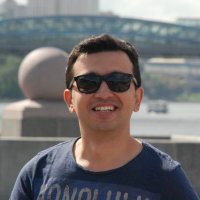
Authors are required to respond to editorial emails within 3 days to avoid any disruption to the editorial process.